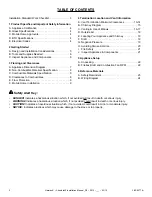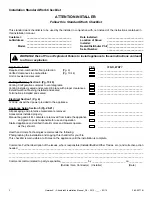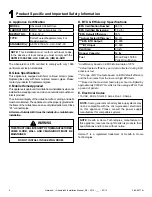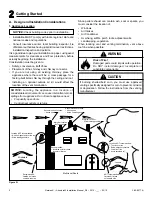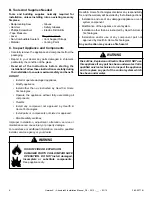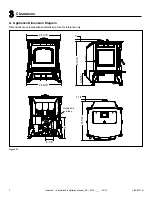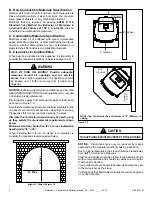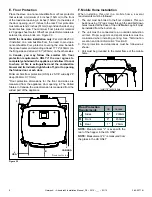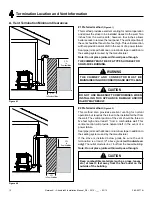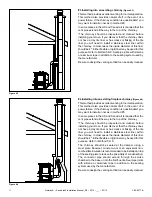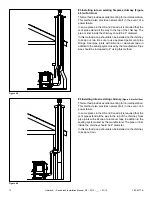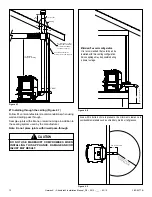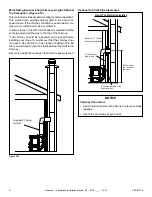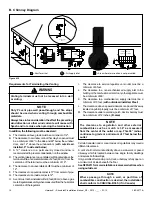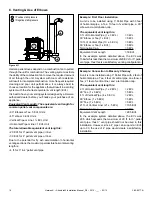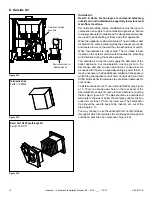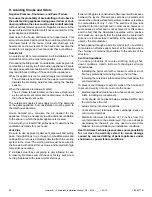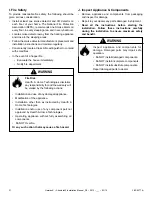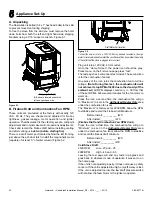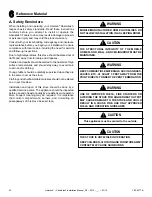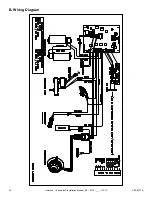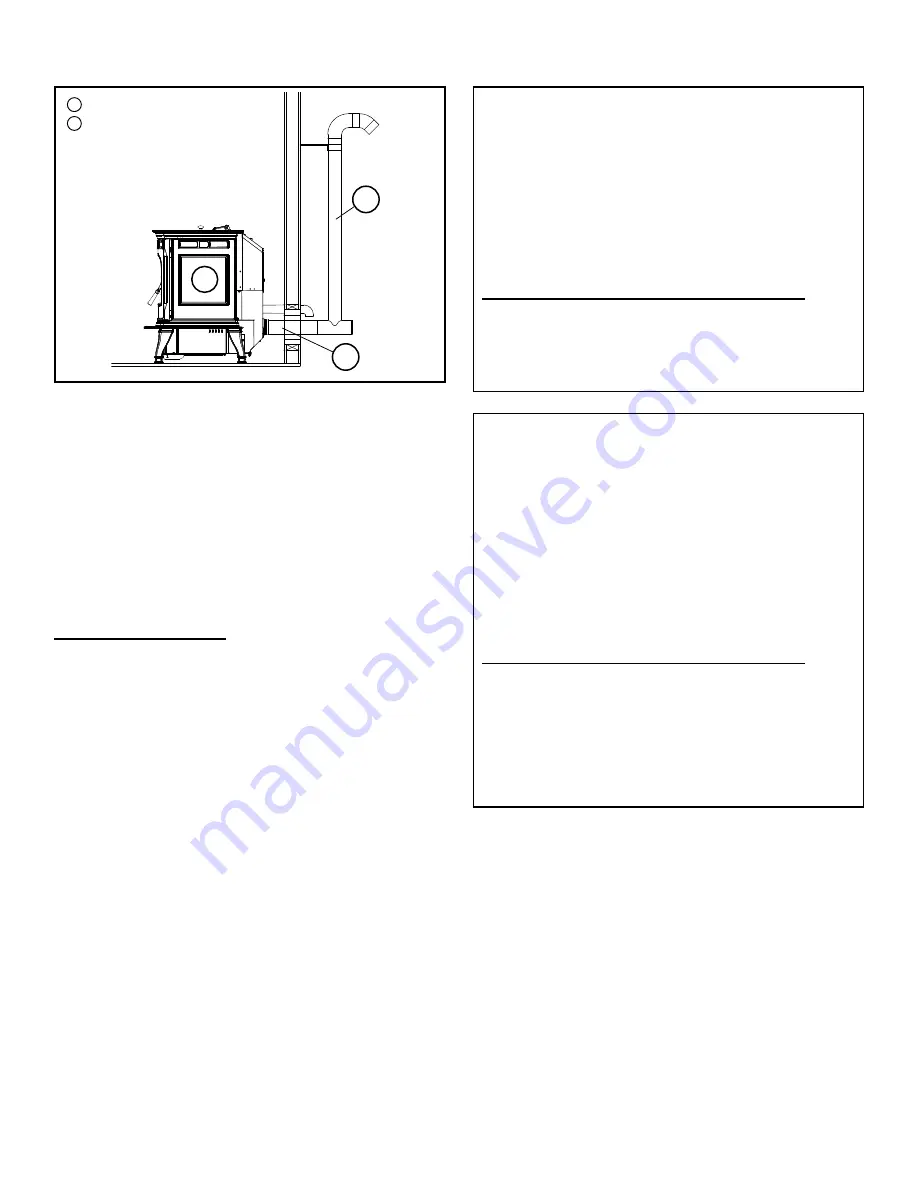
Harman® • Absolute43 Installation Manual_R2 • 2015 - ___ • 03/15
16
3-90-00778i
C. Venting & Use of Elbows
Figure 4.11
= Positive static pressure
= Negative static pressure
+
-
+
+
-
Harman pellet stoves depend on a combustion fan to pull air
through the unit for combustion. The venting system restricts
the ability of the combustion fan to move the required amount
of air through the unit. A system with too much resistance
will result in incomplete combustion, more frequent required
cleaning and poor unit performance. It is always best to
choose a location for the appliance that will result in a venting
system with the shortest equivalent vent length (EVL).
It is best to have your venting system designed by a Harman
authorized dealer before you finalize your purchase of an
appliance.
Equivalent Vent length: The equivalent vent length for
common pellet vent components are:
• 90° Elbows or Tee: 5 EVL Units
• 45° elbow: 3 EVL Units
• Vertical Pipe or Liner: ½ EVL Unit
• Horizontal Pipe or liner: 1 EVL Unit
The total allowable equivalent vent length is:
• 20 EVL for 3” pellet vent pipe or liner.
• 30 EVL for 4” pellet vent pipe or liner.
Due to the potential for fly ash accumulation in horizontal
venting sections, the maximum permissible horizontal venting
length is:
• 4 ft. for 3” & 4” pellet vent pipe.
Example: First Floor Installation
A unit is to be installed using 3” Pellet Pipe with 3 feet
of horizontal pipe, a Tee, 10 feet of vertical pipe, a 90°
elbow and a termination cap.
The equivalent vent length is:
3 ft. of Horizontal Pipe (1 x 3 EVL)
= 3 EVL
90° Elbow or Tee (1 x EVL)
= 5 EVL
10 ft. of Vertical Pipe (10 x .5 EVL)
= 5 EVL
90° Elbow or Tee (1 x EVL)
= 5 EVL
Termination Cap
= 0 EVL
Equivalent Vent Length
= 18 EVL
In the example system detailed above, the EVL was
138which is less than the maximum of 20 EVL for 3” pellet
vent pipe, thus this is a satisfactory venting configuration.
Example: Connection to Masonry Chimney
A unit is to be installed using 3” Pellet Pipe with 2 feet of
horizontal pipe, a Tee, 4 feet of vertical pipe, an elbow, a
Tee, 21 feet of vertical liner, and a termination cap.
The equivalent vent length is:
2 ft. of Horizontal Pipe (1 x 2 EVL)
= 2 EVL
90° Tee (1 x 5 EVL)
= 5 EVL
4 ft. of Vertical Pipe (4 x .5 EVL)
= 2 EVL
90° Elbow (1 x 5 EVL)
= 5 EVL
90° Tee (1 x 5 EVL)
= 5 EVL
21 ft. of Vertical Liner (21 x .5 EVL)
= 10.5 EVL
Termination Cap
= 0 EVL
Equivalent Vent Length
= 29.5 EVL
In the example system detailed above, the EVL was
29.5 which exceeds the maximum of 20 ft. for 3” pellet
vent pipe, thus 3” vent pipe should not be used in this
installation. However, since 4” pipe can support an EVL
up to 30, the use of 4” pipe would create a satisfactory
installation.

